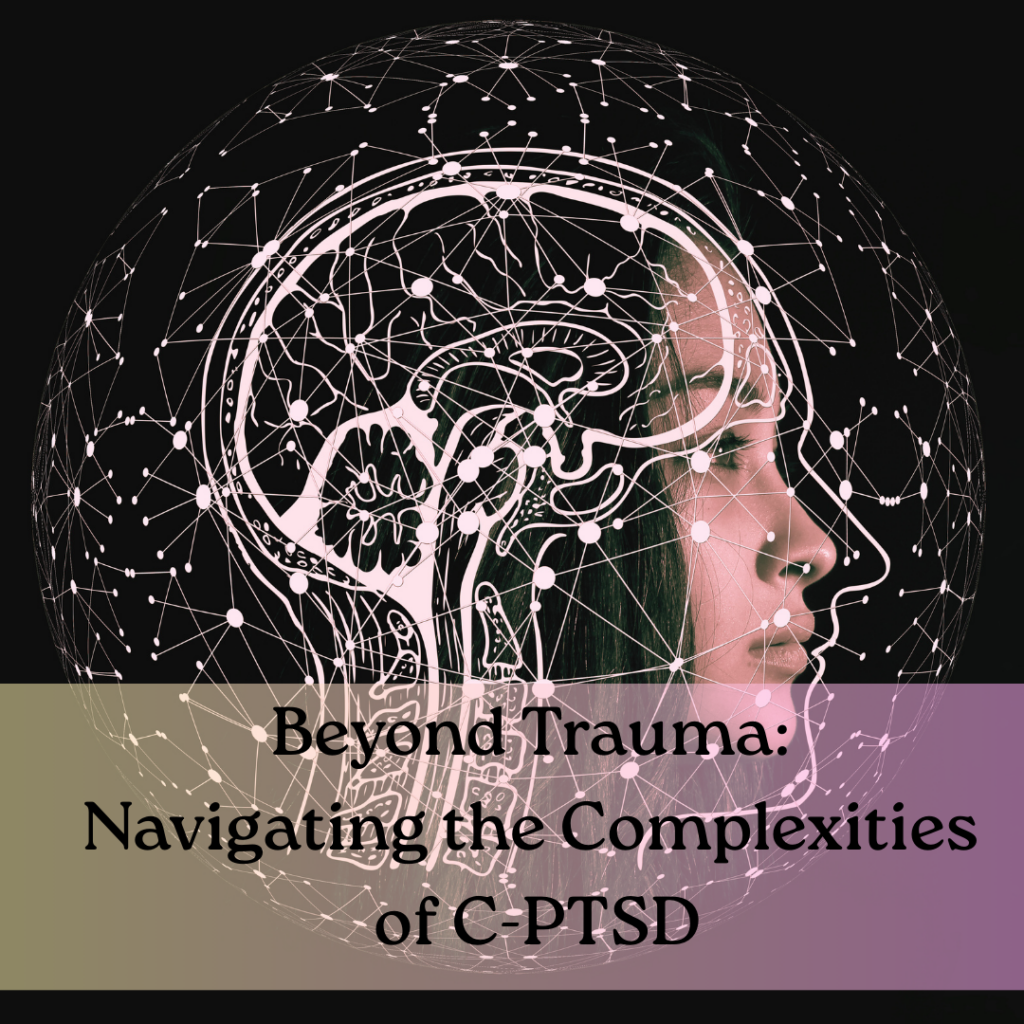May is Mental Health Awareness Month. While we discuss the effects of mental health all year round, in May, we collectively focus on the challenges faced. How can we further break the stigma of mental health challenges? What new approaches can we provide in a supportive manner? Every mental health story shares the power of strength, resilience and understanding. There are many misconceptions about mental health. However, with each passing day, we aim to reduce the stigma and educate the masses about its complexity.
Today, we would like to centre the discussion on complex post-traumatic stress disorder (C-PTSD). We hear and talk about post-traumatic stress disorder (PTSD) all the time. Yet, the two diagnoses do differ by length of trauma and symptoms. To gain familiarity with C-PTSD, education, destigmatization, and support are essential to provide awareness.
What is complex post-traumatic stress disorder?
Though they are related, there is a significant difference between PTSD and C-PTSD. PTSD usually occurs after being a part of or witnessing the trauma of a single event. C-PTSD develops after repeated chronic trauma. Examples of chronic trauma can include long-term child abuse, long-term domestic violence, war and community violence.
Complex post-traumatic stress disorder culminates in signs and symptoms such as:
- Emotional dysregulation: Reactions to negative prompts may trigger anger, sadness or an aggressive response. People with C-PTSD would have extensive issues controlling their emotions and tend to keep themselves preoccupied to avoid reliving the event.
- Negative self-concept: Persons with C-PTSD’s sense of self comes into question. Negative thoughts and emotions accompanied by feelings of shame, guilt and failure are at the forefront. These perspectives will cause a shift in perception about yourself and your trust in others.
- Interpersonal difficulties: People with C-PTSD often avoid situations or places related to the traumatic incident due to anxiety. They would also have difficulty maintaining longstanding relationships. There would be a noticeable and intentional withdrawal from friends and others.
- Physical symptoms: Effects of complex post-traumatic stress disorder can show up in chronic body aches and pains. It can also reflect in stomach issues and fatigue from the outcome of carrying long-term stress.
How to support a loved one with C-PTSD
The initial goal is to help and support loved ones with C-PTSD in the best way possible. Without playing the blame game or shaming, we can find healthy ways to assist someone in need. It’s already difficult for C-PTSD sufferers to articulate what’s happening. Therefore, here are a few tips to keep handy that can help.
- Don’t minimize someone’s experiences. Provide a listening, non-judgmental ear.
- Be an active listener. Attentively listen so you can provide the best response to the issue at hand.
- Connect with said person. Provide a safe space where they feel relaxed and open to talk. Let them know they’re not alone.
- Bring your authentic self to the discussion. It will be appreciated and allow your loved one to do the same.
- Ensure that boundaries are in place and are respected on both ends.
- Learn about the condition. The more informed you are, the better position you will be in to help and understand.
- Don’t forget to take care of yourself, too. If you’re working on fumes or struggling with your mental health, you won’t be any good to your friend or yourself.
During Mental Health Month, we must continue to advocate for trauma-informed care. To break down barriers, understand and inform, we educate, empower and encourage the overall importance of having healthy mental health.
The work is ongoing. Healing from chronic trauma is attainable. Let’s proceed with the goal in mind: to change the stigma of mental health, promote awareness and provide the necessary foundation for healing.
Ancestral Memory Therapy is here to assist you on your healing journey. Reach out to us today for a consultation. We’d be happy to discuss your options.

